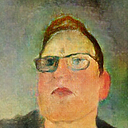Well, you have to break this into two separate issues.
There is a valid left critique of social media: Power over the communications platforms we all use shouldn’t be concentrated into the hands of a tiny handful of unelected corporations, who make arbitrary decisions about who can and cannot use them.
On the other hand, people who are nominally “anti-censorship” don’t really want to operate in an online environment of free speech absolutism, either. We all accept that there is a line somewhere.
Is it “censorship” to remove an image of a murdered girl? Is it infringing on free speech rights to remove videos of the Christchurch shooting, which was intended to inspire other racist massacres? Was Facebook unfairly policing the political speech of Ashin Wirathu when they banned the page he was using to incite the slaughter of Rohingya Muslims?
It’s hard to draw a neat line between speech and action, because sometimes speech is action, ex. individual harassment or demonization of groups as a whole with the intent of inciting violence against them (stochastic terrorism).
The fact that it is so hard to draw those lines means corporations are ill-equipped to the task. They’ll often rely on automated reporting and flagging, which can result in people being unfairly suspended or bad actors can organize mass-reporting, as was the case with journalist Elizabeth King.
However, just because social media companies are bad at enforcing these rules doesn’t mean they shouldn’t exist.
